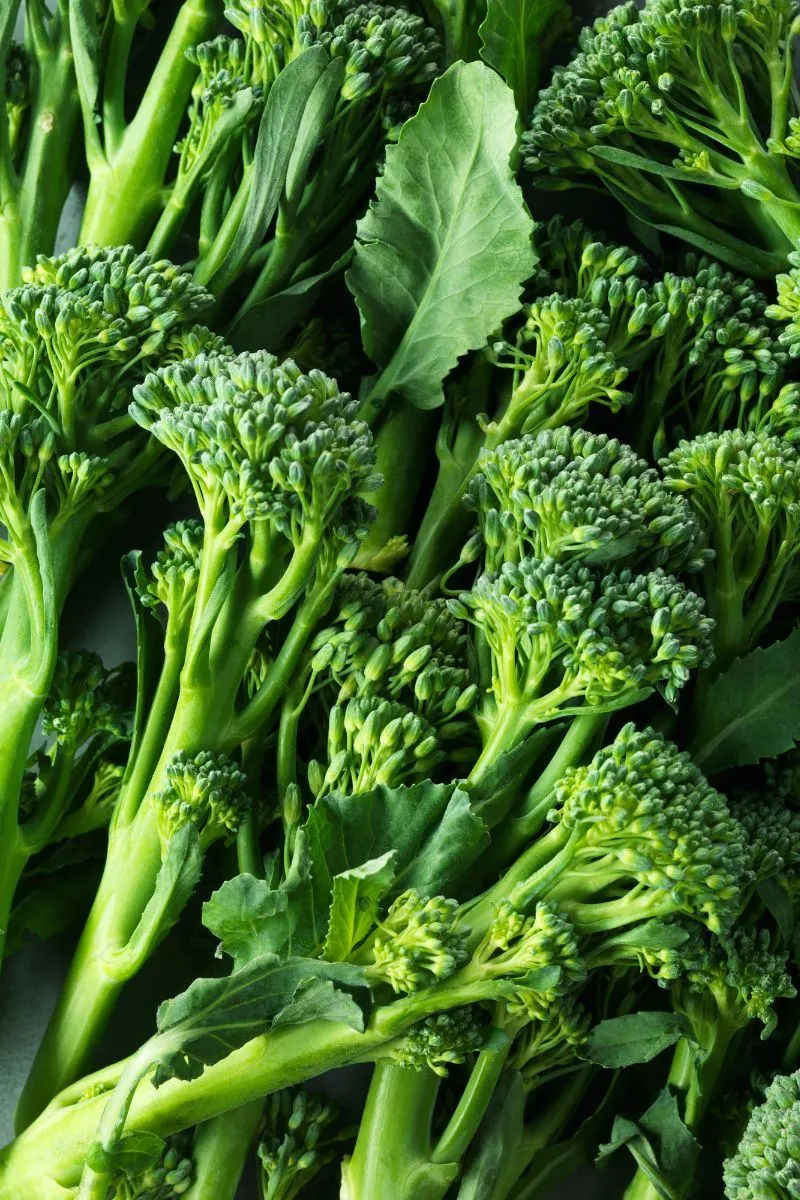This article reveals the differences between asparagus and broccoli:
Asparagus
It is s spring vegetable which is used in dishes around the world, including pasta, frittatas, and stir-fries.
In the present day, Peru is the world’s leading asparagus exporter, followed by the United States and Mexico.
Asparagus comes in a variety of colors, including white, green, and purple.
Broccoli
It belongs to the cruciferous vegetable family, which also includes cauliflower, Brussels sprouts, kale, collard greens, rutabaga, bok choy, turnips, and cabbage. This cruciferous gets its name from the Italian word “broccolo,” which translates to “cabbage sprout.”
Broccoli is commonly consumed steamed or boiled, however, it can also be eaten raw.
Nutrition Facts
100g of raw asparagus contains:
- 20 Calories;
- 2.1g Fiber – 8% daily value;
- 2.2g Protein – 4% DV;
- 756IU Vitamin A – 15% DV;
- 5.6mg Vitamin C – 9% DV;
- 41.6mcg Vitamin K – 52% DV;
- 0.1mg Thiamin – 10% DV;
- 0.1mg Riboflavin – 8% DV;
- 1mg Niacin – 5% DV;
- 0.1mg Vitamin B6 – 5% DV;
- 52mcg Folate – 13% DV;
- 0.3mg Pantothenic Acid – 3% DV;
- 24mg Calcium – 2% DV;
- 2.1mg Iron – 12% DV;
- 14mg Magnesium – 3% DV;
- 52mg Phosphorus – 5% DV;
- 202mg Potassium – 6% DV;
- 0.5mg Zinc – 4% DV;
- CQ10;
- 0.2mg Copper – 9% DV;
- 0.2mg Manganese – 8% DV;
- 2.3mcg Selenium – 3% DV.
100g of raw broccoli contains:
- 34 Calories;
- 2.6g Fiber – 10% daily value;
- 2.8g Protein – 6% DV;
- 623IU Vitamin A – 12% DV;
- 89.2mg Vitamin C – 149% DV;
- 0.8mg Vitamin E – 4% DV;
- 102mcg Vitamin K – 27% DV;
- 0.1mg Thiamin – 5% DV;
- 0.1mg Riboflavin – 7% DV;
- 0.6mg Niacin – 3% DV;
- 0.2mg Vitamin B6 – 9% DV;
- 63mcg Folate – 16% DV;
- 0.6mg Pantothenic Acid – 6% DV;
- 47mg Calcium – 5% DV;
- 0.7mg Iron – 4% DV;
- 21mg Magnesium – 5% DV;
- 66mg Phosphorus – 7% DV;
- 316mg Potassium – 9% DV;
- 0.4mg Zinc – 3% DV;
- Quercetin;
- 0.0mg Copper – 2% DV;
- 0.2mg Manganese – 10% DV;
- 2.5mcg Selenium – 4% DV.
Health Benefits
Asparagus

@Getty
Vitamin K
It is a fat-soluble vitamin that is mostly known for its role in helping blood to clot. Other benefits include:
- improves insulin sensitivity;
- helps prevent osteoporosis (a type of bone disease) by regulating calcium;
- helps prevent the hardening of the arteries (atherosclerosis);
- helps prevent cancer;
- helps in stroke prevention.
Symptoms of a vitamin K deficiency can include:
- excessive menstrual bleeding;
- blood in the urine;
- easy bruise formation;
- excessive bleeding;
- osteopenia;
- defective blood clotting.
100g of asparagus contains 41.6 mcg of vitamin K which is approximately 52 percent of the daily recommended intake.
Vitamin A
One of the most well-known benefits of this vitamin is its capacity to keep your eyes healthy and enhance vision.
Vitamin A is also involved in brain function, heart, kidneys, skin, lungs, and immune system health.
The major deficiency symptoms of vitamin A include:
- precancerous changes in the body tissues;
- sexual disorders;
- brittle nails;
- dandruff;
- dull lusterless hair;
- xerophthalmia (dryness of the conjunctiva);
- inflammation of the eyelids;
- a burning sensation or itching in the eyes;
- night blindness;
- keratinization of the skin.
Note – asparagus has beta-carotene, a carotenoid that is converted into vitamin A by the body – only when needed.
100g of asparagus contains 756 IU of vitamin A which is approximately 15 percent of the daily recommended intake.
Fiber
Dietary fiber includes the parts of plant foods that the body can’t digest. Fiber comes in two forms:
- insoluble fiber – this type of dietary fiber doesn’t break down in the gut. Its primary function is to make the stool bulky and easier to excrete;
- soluble fiber – it slows the emptying of the stomach and digestion that can regulate the rate at which sugars are absorbed by the blood. In addition, soluble fiber reduces the production of cholesterol in the body.
100g of asparagus contains 2.1g of dietary fiber which is approximately 8 percent of the daily recommended intake.
ALSO READ: Swerve vs Truvia
Broccoli

@Getty
Sulforaphane
Broccoli contains sulforaphane, a sulfur-containing compound that is present only in cruciferous vegetables. In the human body, this compound stimulates the production of enzymes that neutralize free radicals.
Sulforaphane also activates a protective protein that prevents atherosclerotic plaque development on the arterial walls of the heart. According to a 2009 study that was done at Johns Hopkins Medical Institutions, broccoli can protect against stomach bugs, ulcers, and stomach cancer.
Folate
Folate, also known as vitamin B9, is a water-soluble member of the B-complex family. It is important in energy production and is a major compound in the formation of red blood cells.
Pregnant women with an insufficient intake of folate have increased chances to deliver babies with neural tube defects or a low birth weight.
Note – if you are planning to get pregnant, it is suggested that you increase your daily intake of vitamin B9 for at least 30 days prior to pregnancy.
100g of broccoli contains 63 mcg of folate which is about 16 percent of the daily recommended intake.
ALSO READ: Lime vs Lemon – Nutrition Facts
Vitamin C
Vitamin C is an antioxidant that helps neutralize free radicals in the body and helps support the immune system.
It is needed to produce collagen, a protein that plays an essential role in the structure of the human body, especially in the ligaments, tendons, blood vessels, and bones.
Other health benefits of vitamin C include:
- improved general physiological function;
- improved cellular electron flow;
- it boosts the absorption of non-heme iron – the type of iron found in plants.
Symptoms of a vitamin C deficiency include:
- bleeding nose;
- slow healing time;
- bleeding gums;
- complaints of gum inflammation;
- tooth enamel erosion;
- gingivitis-like symptoms;
- dry and flaky skin;
- hyperkeratosis;
- dry hair with split ends;
- poor immunity;
- fatigue;
- frequent cold and cough.
100g of broccoli contains 89.2 mg of vitamin C which is about 149 percent of the daily recommended intake.
ALSO READ: Ginkgo Biloba vs Ginseng – Differences
Bottom Line – Asparagus vs Broccoli
Broccoli has a higher level of protein, calories, vitamin C, vitamin K, sulforaphane, manganese, and phosphorus than asparagus, however, both vegetables should be included in your regular diet.
Regarding their taste:
- asparagus tastes similarly with green beans (note – its flavor is very mild when the spears are fresh);
- broccoli tastes similarly with a raw cabbage, however, it has somewhat more depth in the taste.
Whether you’re looking for a healthy side dish or a nutrient-packed meal, asparagus and broccoli are both excellent choices.
Sources https://news.psu.edu/story/486322/2017/10/13/research/it-or-not-broccoli https://www.hopkinsmedicine.org/institute_basic_biomedical_sciences/news_events/
